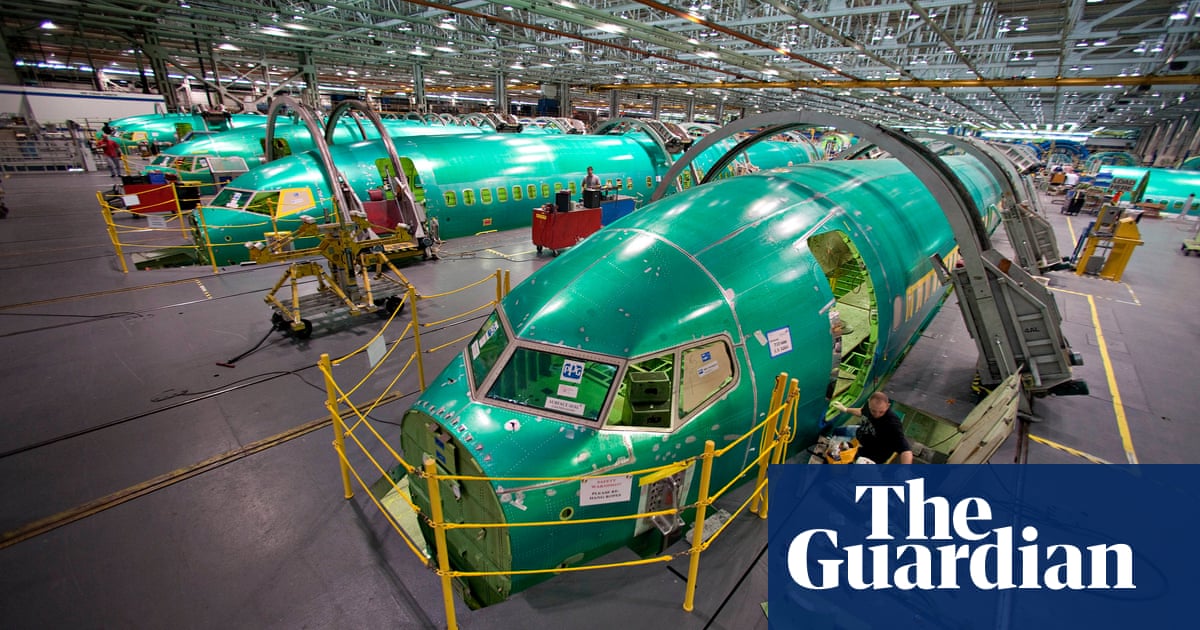Much has changed in Belfast since the 1930s. Yet despite the Second World War, decades of Troubles and the sharp decline of heavy industry, the Short Brothers factory has continued to produce aircraft and components.
But now the takeover of the plant’s owner, Spirit AeroSystems, by US aircraft manufacturer Boeing is raising questions about its future. Workers and politicians fear a new ownership structure could lead to major job losses at one of Northern Ireland’s largest manufacturers, which employs around 3,500 people.
Boeing announced Monday the acquisition of Spirit for $4.7 billion as it tries to regain control of parts of its supply chain after safety failures. But Spirit is also a key supplier to bitter rival Airbus, making wings and fuselages for the small A220 passenger jet. With little prospect of Boeing supplying its European rival, Spirit will hand Airbus its factories in Belfast, France, Morocco, and Kansas and North Carolina in the U.S.
Alan Perry, a senior organiser at the GMB union, which represents workers at the plant, says that around 40% of the plant’s revenue comes from producing parts for Airbus. (The rest comes from companies including Bombardier, Rolls-Royce and Honda Aircraft.)
“The real fear is about the other 60%,” he says. “We’re still in limbo. Even if Airbus stays on the site, we’re looking at splitting up the factory.”
Belfast’s industrial icons are in a difficult position. The Short Brothers’ neighbour, Harland & Wolff shipyard, was forced to suspend its shares on Monday after the company failed to submit audited accounts on time.
The Airbus deal sends a strong signal that the Spirit assets it has acquired are not financially attractive: Spirit is paying Airbus $559m (£442m) to take the business off its hands before the merger with Boeing. Just four years ago, Spirit acquired Bombardier’s operations in Northern Ireland, Morocco and Dallas in the US in a £211m deal.
The Belfast operation, which still trades under the historic Short Brothers name, has not reported a profit since 2016. In the last decade of published financial results, it has reported cumulative losses of more than $1bn (£789m) – including $500m (£395m) in 2020 as the coronavirus pandemic ravaged the airline industry.
It’s a tough situation for a company that is the world’s oldest aircraft manufacturer. The company’s history goes back to 1897, when Eustace Short and his brother Oswald started a balloon-making business. Production began in Hove, then London, before switching to aircraft manufacturing after hearing of the Wright brothers’ successful demonstrations of their aircraft. The Shorts acquired the British rights to build copies of Wright’s design, and in 1909 established the world’s first aircraft factory on the Isle of Sheppey, Kent.
The move to Belfast came in the 1930s, when the government realised that factories in the south-east of England would be vulnerable in the looming war. It has produced aircraft or parts thereafter, under government ownership between 1943 and 1989, and then as part of Canadian Bombardier until Spirit bought it in 2020.
That long history – even during the Troubles that ravaged the country for decades and hampered the development of the economy in the north of Ireland – has made it a major source of well-paid employment in a region that lags behind the rest of the UK.
after newsletter promotion
Kevin Craven, chief executive of ADS, a lobby group for the UK aerospace and defence industry, says consolidation “must not come at the expense of the economic security of our sectors.
“It remains the case that Northern Ireland plays a vital role in advanced manufacturing in the UK, delivering exceptional capabilities that are globally renowned for their quality,” he said. “It is vital that sites are maintained in these technical centres of excellence and advanced manufacturing footprints.”
The takeover could be an early test for Hilary Benn, currently Labour’s shadow secretary for Northern Ireland, if the party comes to power as expected on Thursday. He has reportedly been briefed on the situation.
Local politicians are concerned. Northern Ireland’s Economy Minister Conor Murphy has said he wants to “ensure that the future status of the highly skilled workforce is protected”, while Ulster Unionist Party finance spokesman Steve Aiken said the government must ensure that work is not moved elsewhere.
For employees, the takeover could mean weeks of uncertainty, with possible negative economic consequences.
“It’s a major employer, not just in the local east Belfast area but further afield,” Perry said, adding that job losses “will impact not just the supply chain but the wider economy.”
